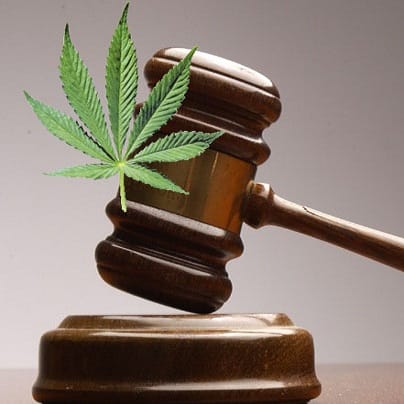 By Steve Elliott of Toke of the Town
By Steve Elliott of Toke of the Town
If one prominent attorney is right about the legal ramifications of the District of Columbia’s marijuana law — specifically, that it was approved by the U.S. Congress — then it could be a game-changer nationwide.
D.C.’s medical marijuana law was the first time that the United States Congress had ever given its explicit assent to any state or local law that permits the medicinal use of marijuana — and, according to a California attorney who specializes in health care compliance, that is enormously significant under the Equal Protection clause of the U.S. Constitution.
In 2009, noting that it was “allowing” the voters of Washington, D.C., to vote on and implement that city’s Legalization of Marijuana for Medical Treatment law, Congress approved medicinal cannabis in the federal District of Columbia, over which it has all governmental power.
On December 2, 2011, in anticipation of the opening of medical marijuana dispensaries and cultivation centers, the District’s mayor released final rules for the program. Last month, the D.C. Council compromised on medical marijuana cultivation centers, a compromise agreement that limited the number of centers in each ward to six. The District of Columbia’s medical marijuana program is now being implemented.
“States with medical marijuana programs should now be free from federal interference since Congress has allowed local control,” attorney Matthew Pappas at Pappas Law Group, based in Long Beach, California, told Toke of the Town Monday afternoon. “Congress being the legislative branch of the federal sovereign and the only body that can change these laws has now done so by recognizing the voting rights of Washington, D.C., citizens.”
Likewise, Californians and citizens of the 15 other states which have legalized medicinal cannabis are equally protected and have the same voting rights in respect to medical marijuana, according to Pappas Law Group.
?”Congress has turned over the area of medical marijuana to state and local governments,” said Pappas, speaking for the disabled plaintiffs in the California case Marla James v. the Cities of Costa Mesa and Lake Forest. “Through Congress’s duty to equally protect everyone under the law, all patients in states with medical marijuana laws operating in full compliance with those laws should not, from now forward, be subject to previous long standing federal marijuana prohibitions.”
“They’re not going to be subject to the CSA [Controlled Substances Act,” Pappas confirmed to Toke of the Town in a telephone conversation. “In our country, when one group of voters has been given the right to vote on something, other voters, likewise, have the right to do so — in this case, approve medical marijuana.”
“In states where voters have not voted on it, for instance Nebraska, of course it’s not going to be legal there,” Pappas told us. “But patients and medical marijuana centers operating in full compliance with state laws — through equal protection — are not going to be subject to federal prohibition.”
“Our traction in the courts is very strong on this issue,” Pappas told us. “I’m very positive that at some point we’re going to have a decision from the courts.”
Pappas, who earned his J.D. from Western State University and was admitted to practice law in the State of California in 1994, is a member of the federal bars for the Ninth Circuit U.S. Court of Appeals, the Central District of California, the Northern District of California, and the Southern District of California.
Focused in the area of health care regulatory compliance, he developed compliance systems for large health care providers including University Medical Center Southern Nevada, UNR Medical School, Pharmerica, Children’s Hospital of Ohio, Banner Health System, and Molina Healthcare.
For more information, contact Sergio Sandoval, director of public relations at Pappas Law Group.
Article From Toke of the Town and republished with special permission.




